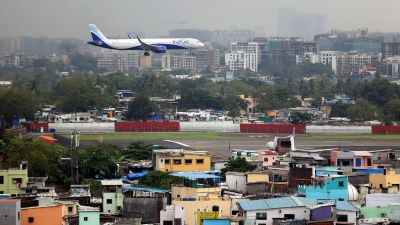Pune among worst hit by drought
Pune district has declared 11 out of its 14 talukas as drought-hit this year - far more than the state average of 129 talukas out of 358 that are now drought-affected. Since 1974,the state has faced droughts every four years.
Pune district has declared 11 out of its 14 talukas as drought-hit this year – far more than the state average of 129 talukas out of 358 that are now drought-affected. Since 1974,the state has faced droughts every four years.
While efforts are on to recharge the fast depleting groundwater levels in the drought-hit talukas with the district administration undertaking the construction of water harvesting tanks called vanrai bandharas,the fact remains that there seems to be no specific long-term action plan in place to fight this periodic occurrence of drought.
But experts in the field of water conservation are unhappy with the short-term measures that the administration is taking. The state needs a drought policy. Since 1974,there have been droughts every four years but the government has been finding short-term remedies. Moreover,the administration treats drought as a natural calamity and conducts relief operations every time there is a drought-like situation. A permanent solution such as water harvesting,rational distribution of water needs to be undertaken, said Sampat Kale,activist,National Centre for Advocacy Studies.
Most of the schemes declared by the government do not see the light of the day,Kale said. For instance,R R Patil,during his tenure as the deputy chief minister had declared to set up a drought commission; but this has not come into existence till date,he added.
The state falls back on the Maharashtra Water Policy,2003,that uses the World Bank model of water allotment to fight drought,said Kale. The problem with this model is that it allows the tanker lobby to thrive. This promotes commercialisation of water.
Groundwater levels in Daund,Baramati,Indapur,Velhe,Purandar,Shirur,Ambegaon,Khed,Junnar,Maval and Haveli have dropped significantly and in order to recharge the same we plan to undertake a one-month project starting September 15. The kharif crop was affected significantly due to less rains; however,by making the seeds available at 50 per cent price,we plan to increase the fodder production during the rabbi season, said Dilip Band,divisional commissioner,Pune division.
Due to irregular rains,water levels in most of the dams in the district have not been able to cross the 50 per cent mark till date. We are supplying water to all the major talukas with the help of tankers. With a total of 16 tankers 10 for Baramati,three for Daund,one each for Junnar,Shirur and Haveli we are hopeful that the situation will soon come under control, said Sanjay Shinde,deputy collector,Employment Guarantee Scheme and coordinator for drought in the district.
The problem is vote bank politics looks at drought as an opportunity to garner votes and unless this attitude changes,I do not foresee a policy coming into existence, said Mukund Ghare,a groundwater expert.







